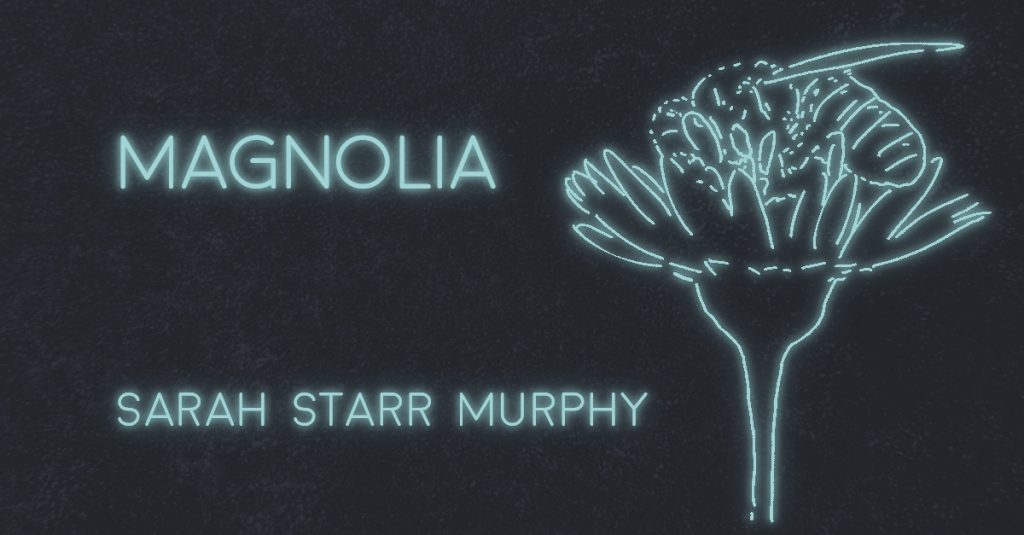
MAGNOLIA by Sarah Starr Murphy
The bumblebee swerves across the yard to a yellow daffodil. The bee clings to the flower’s face for an instant, then crawls on her abdomen into the cylinder of the corona, stretching her tongue towards the sweet nectar and flattening her last two legs behind like a puppy. She nuzzles in, wriggling. She backs out, clinging onto the rim with her four hind legs. Her front two legs wipe the pollen from her furry body. It falls in tiny but discernible chunks. She wipes her head a few more times, then buzzes off for the next flower. The young boy…
